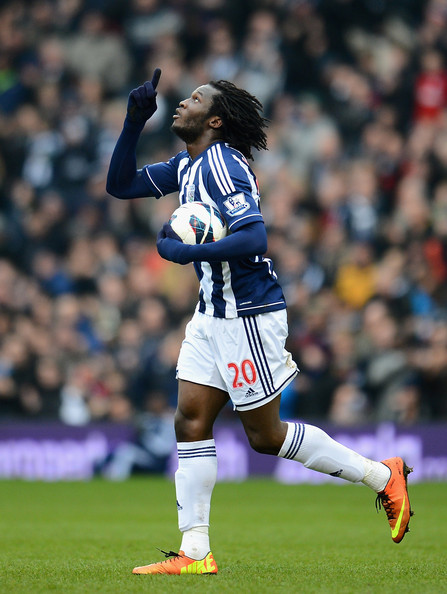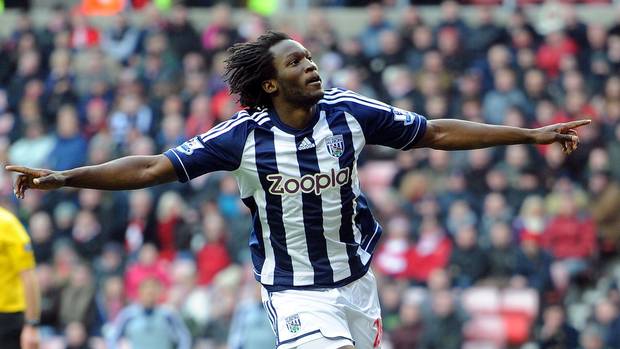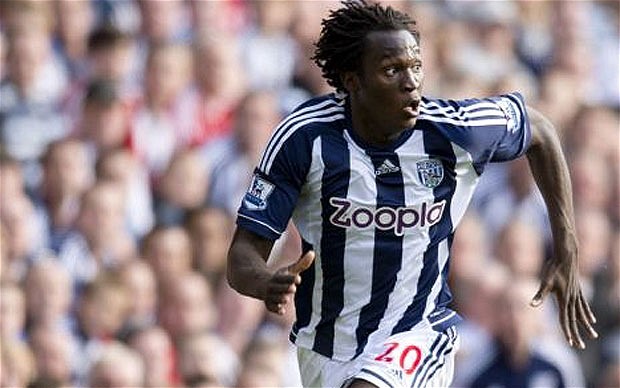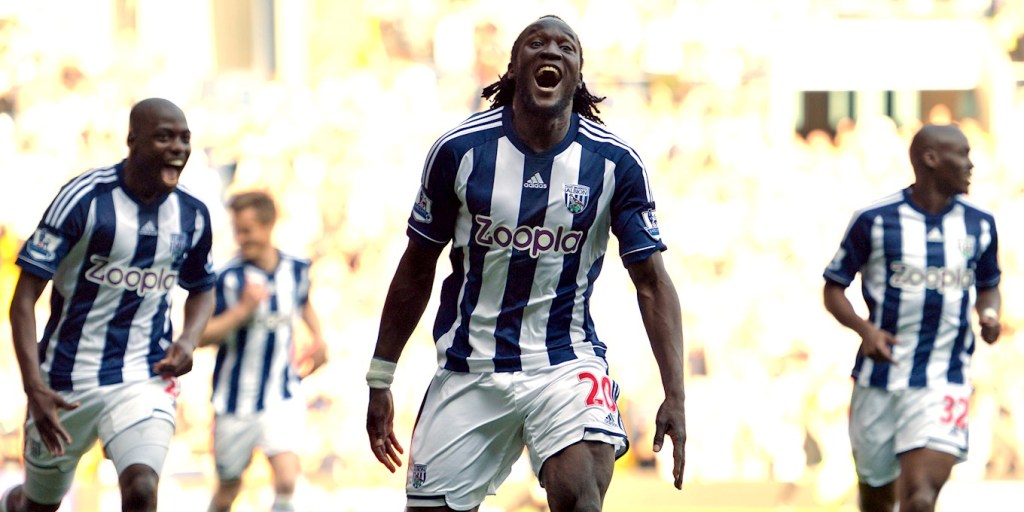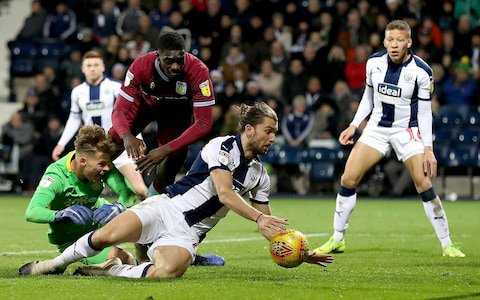
There aren’t many clubs that would follow up a draw with Manchester City by sacking their manager, but West Bromwich Albion are not just any club and, if history serves to show anything, it would show that Albion are a club that should now be known for making decisions that can leave people scratching their heads. The dismissal of Slaven Bilic has done just that to many an outsider and many a supporter. But was it really all that surprising?
When Bilic joined the club, he arrived upon wave that had a mixture of optimism and pessimism. Having failed to win promotion the year prior, losing to Villa in the play offs, Albion became set to lose a number of first team players. The strikers, Gayle and Rodriguez, accountable for 46 of Albion’s goals, left. Craig Dawson left. There remained concern by the start of the season, mainly because the strike force was not good enough – Kenneth Zohore was signed from Cardiff for £8m, Charlie Austin signed for £4m…the only other recognised striker was Hal Robson-Kanu. But, despite the fears over strikers, there was optimism over the fact the club had managed to hire Bilic.
And it was an optimism that paid off. Albion played some genuinely exciting football. The concern around strikers shrunk a little as Hal Robson-Kanu seemed to discover a goalscoring streak he’d never had before in his career. The loan signings of Grady Diangana and Matheus Pereira were inspired, giving the Albion an attacking flair that had felt missing from the club for some years. There were goals from all over the pitch. It was as close to the Tony Mowbray style Albion you could get without having Tony Mowbray. Unfortunately, that also meant defensively Albion were often found out, but the attacking displays ensured it never really mattered to begin with.

But then, COVID came. The world stopped. Football stopped. And, when it finally came back, something felt different. The team struggled, players like Diangana and Pereira seemed to miss the crowd to play up to…form dipped. In the background, Brentford were winning consistently. Before lockdown, Albion were walking to promotion with Leeds. Following lockdown, and especially after losing to Brentford, it looked like Albion had fallen well off track and would be back in the pay offs.
Albion couldn’t seem to win the games that mattered. Any “must win” game would result in a poor performance. Albion drew too many games…and Brentford kept winning. The pressure told and there were real concerns…but luck was on their side. Brentford, to the surprise of many, lost their final two games against Stoke and Barnsley. Albion drew their final game against QPR 2-2. It was all that was needed. The club hobbled to automatic promotion…Slaven Bilic had a successful first season.
When Bilic joined, the club had made it clear that there was a two year plan. Promotion wasn’t key in the first season. The two year target was to achieve promotion by the end of the second year. Bilic had done it in one. In any other time, that would be recognised as a massive success and would probably give Bilic a year to just attempt the Premier League…but to ignore the impact of COVID on the “Two Year Plan” is as bad as ignoring the form of the team since lockdown.
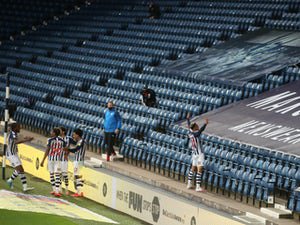
For many Albion fans, the dismissal of Bilic is probably not as surprising as many would imagine it is or should be. In the 22 games since the return of football, Albion have only gained 20 points (4 wins, 8 draws, 10 losses). If that was a return of 20 points in 22 games in the Premier League you could argue it was a decent return…but 9 of the games were in the Championship. If you compare the final 22 games against other recent ‘harsh’ dismissals at Albion – Darren Moore (37 points), Roberto Di Matteo (23 points), Steve Clarke (20 points) and Tony Pulis (15 points) – it’s easier to understand why Bilic has been sacked. Football is a results business…and, despite a good point against Manchester City, the results haven’t been there for some time. The dip in form will have most likely been a major factor in the club not discussing a new contract with Bilic following promotion – something that, in hindsight, should have given warning sign as to what the club’s hierarchy may have been thinking about Bilic.
The argument against the results argument then falls to the “Two Year Plan”. The reality is that when the plan was put in place, it will have factored in parachute payments and gate receipts, as well as sales from the club shop, hospitality deals and more. COVID ended all of that. The reality is that promotion at the end of year one will have moved from a nice bonus to a necessity. As with all other businesses, plans had to change and the club had to adapt. Senior figures took pay cuts. Had the not won promotion, many people would have lost jobs…players would have needed to be sold. But now we find ourselves in an uncertain period. As COVID stays and Sandwell remains in tier 3, fans don’t return and the club don’t make the money they would have done before. And that creates more issues – all factors that would have played in to the decision to sack Bilic and, ultimately, hire Sam Allardyce.
There’s a perceived view around the club that the board did not support Bilic on promotion to the Premier League in the transfer market. The squad isn’t good enough and will always be in the relegation battle (at best). It still lacks a quality striker. Defensively it’s not good enough. But, play Devil’s advocate. The club spent more this pre-season than they have done in any other. In signing Diangana, the clubs transfer record was broke. Karlan Grant was signed for £15m. Bilic made it clear that he wanted Krovinovic – the club signed him back on loan. The ‘lack of support’ is not necessarily the excuse it could be. The argument should, perhaps, be around whether the money could have been spent wiser. You also have to factor in the reality that those in charge of the transfers at the club will recognise we needed more than most, but with the uncertainty of COVID – if it’s still a factor come the end of the season, as well as however much it has impacted finance already – will have likely prevented those in charge from wanting to spend more.

Away from transfers in, one big example of the board and Bilic falling out came over the sale of Hegazi. Prior to the sale, Hegazi was on the fringes of the squad despite being one of the top earners at the club. Arguably, the impact on the finances through COVID and tranfers in will have made selling a necessity. Selling Hegazi removed a reported £70k per week off the table. In a business sense, it made perfect sense…but the signs were absolutely there that this meant issues with Bilic. To not inform him of the sale was absolutely shocking – regardless of whether Hegazi was playing much or not.
There’s then the added factor that the club is up for sale. When you look at the impact COVID has had outside of the Premier League, it doesn’t take much to understand the impact relegation would have on the value of the club. For Lai, he’ll want to make his money back. Relegation would see the value of the club decrease dramatically. Bilic isn’t getting the results…so, enter Sam Allardyce.

Allardyce brings a few certainties. It will be boring football…but he will make Albion harder to beat. The reality is, without a goalscorer, Albion’s only option is to become hard to beat and play on the counter. The team have shown against Manchester City and United, Chelsea and Tottenham that they can be hard to beat…but, in the games that matter (Crystal Palace, for example), they’ve fallen apart. This has been the Bilic curse since lockdown and the hope will be that Allardyce will stop that from happening. He may not be what Albion want, but he may be what Albion need. If Allardyce succeeds, Albion maintain value. Lai will sell and the club will look to move forward. Does Allardyce stay? Time will tell. The only certainty is that Albion are not a football club to a community in the eyes of Lai, but a business commodity – and one that he will want to make money back from.
Bilic has been a bit of a revelation at the club. The passion has been contagious and it’s been a pleasure to have him at the club. Prior to COVID, Albion were playing some of the best football I’d seen at The Hawthorns for many years. The signings of Pereira and Diangana introduced a flair not seen in the team for probably even longer. To say he won the fans back to the club, I feel, is harsh on Darren Moore following the work he did after Pulis and Pardew, but Bilic certainly helped keep those fans and gain a few more.
Bilic took a club and achieved. He leaves with the fans on his side, the players on his side and a reputation that will remain strong. But now the club moves on. And, for any doubts the fans may have, if Allardyce leads the Albion to a win against Villa in his first game then perhaps, just perhaps, the mood will start to lift again.
Thanks for reading! If you like this and want to see more of my writing, please like my Facebook page: Adam Townsend Writer
And, if you’d rather…see me talk mostly nonsense on Twitter by clicking HERE.

